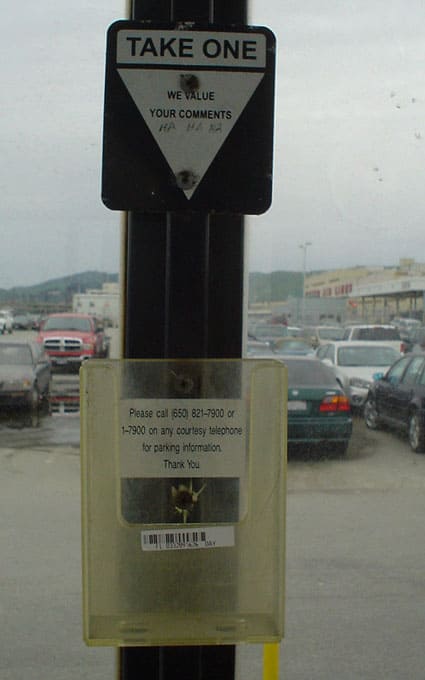Sign o’ the Tmies

CBC News has a tool on their masthead to report a typo.
Some people like to report typos (I’m one of them; I also like to be notified of typos). But there’s also a comment here on ways to listen to customers; CBC perhaps noticed some patterns in type of feedback they were getting and decided to create a channel just for that type of input. As well, by offering that link they are encouraging people to participate in the site on a very simple level, as typo submitters.





